|
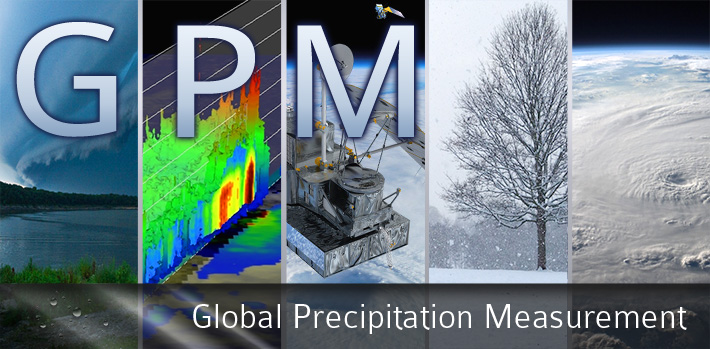
|
Field Campaigns
Global Hydrological Resource Center (GHRC)
GPM GV Field Campaign Collection DOIs GHRC has created collection level DOIs that resolve to field campaign landing pages for each of the Global Precipitation Measurement (GPM) Ground Validation (GV) field campaigns. The field campaign collection landing pages contain an introduction to the purpose, location, and time of the field campaign, the collection citation, general characteristics, member dataset links, and primary documentation relevant to the field campaign. We are currently adding the Field Campaign Collection DOI to metadata for each data product. The landing pages are:
UCONN 2025: Storrs, Connecticut/UConn (Dec 15, 2024 - March 15, 2025)

|
UCONN_2025: Dec 15, 2024 - March 15, 2025
[Storrs, CT (UConn)] |
UCONN 2024: Storrs, Connecticut/UConn (Dec 13, 2023 - March 15, 2024)

|
UCONN_2024: Dec 13, 2023 - March 15, 2024
[Storrs, CT (UConn)] |
IMPACTS 2023: Storrs, Connecticut/UConn (Jan 15, - Feb 28, 2023)
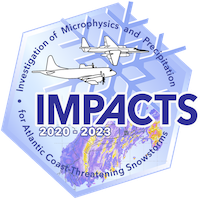
|
IMPACTS (Jan 15 - Feb 28, 2023)
[Storrs, CT (UConn)] IMPACTS |
IMPACTS: Storrs, Connecticut/UConn (Jan 1 - Feb 28, 2022)

|
IMPACTS (Jan 1 - Feb 28, 2022)
[Storrs, CT (UConn)] IMPACTS |
| Field Campaign | DOI Link |
| The Olympic Mountains Experiment (OLYMPEX) | http://dx.doi.org/10.5067/GPMGV/OLYMPEX/DATA101 |
| The Integrated Precipitation and Hydrology Experiment (IPHEx) | http://dx.doi.org/10.5067/GPMGV/IPHEX/DATA101 |
| The Iowa Flood Studies (IFloodS) | http://dx.doi.org/10.5067/GPMGV/IFLOODS/DATA101 |
| The Midlatitude Continental Convective Clouds Experiment (MC3E) | https://doi.org/10.5067/GPMGV/MC3E/DATA101 |
| The GPM Cold-season Precipitation Experiment (GCPEx) | https://doi.org/10.5067/GPMGV/GCPEX/DATA101 |
| The Light Precipitation Evaluation Experiment (LPVEx) | https://doi.org/10.5067/GPMGV/LPVEX/DATA101 |
ICE-POP 2018 (South Korea, Feb 8-25, 2018)
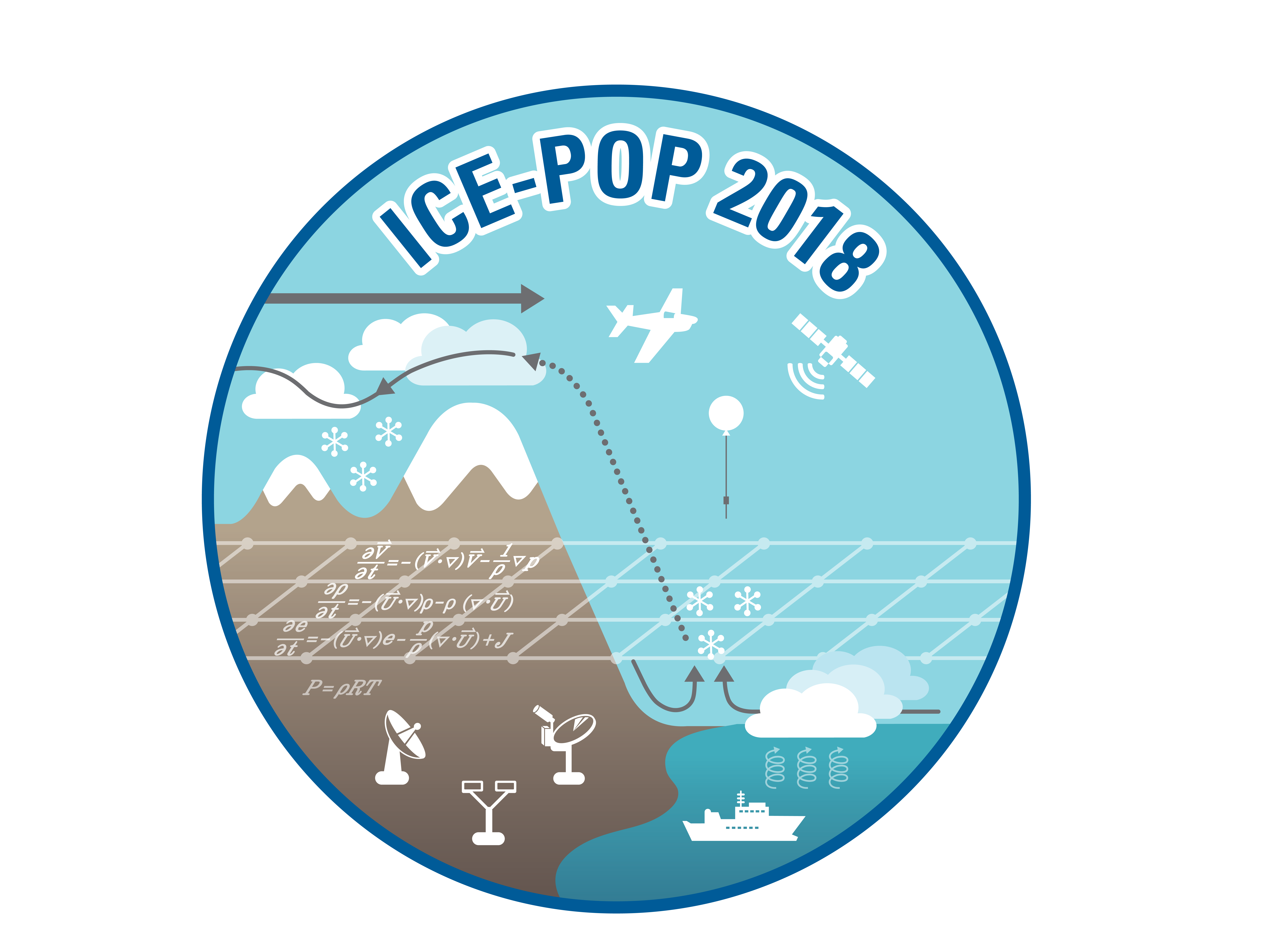
|
ICE-POP 2018 (Korea)
[Pyeonchang, South Korea] The International Collaborative Experiment for Pyeongchange Olympic and Paralympics (ICE-POP) was held in South Korea in February 2018. The NASA GPM Ground Validation program assisted the Korean Meteorological Administration (KMA) with the execution of the International Collaborative Experiment for the Pyeongchang Olympics and Paralympics (ICE-POP) 2018 field campaign. GPM provided ground-based instruments for forecast and research studies before, during and after the planned 2018 Winter Olympic Games. |
Olympic Mountain Experiment (Olympex)
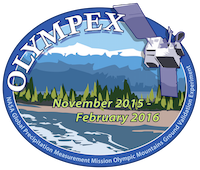
|
Olympic Mountain Experiment (Olympex)
[Northwest Washington, Nov 2015 - Jan 2016] The Olympic Mountain Experiment (Olympex) was held in northwest Washington on the Olympic Peninsula during the 2015-2016 winter. |
Integrated Precipitation & Hydrology Experiment (IPHEx)
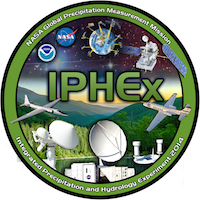
|
Integrated Precipitation & Hydrology Experiment (IPHEx)
[Central North Carolina, May 1 - Jun 15, 2014] The Integrated Precipitation and Hydrology Experiment (IPHEX) seeked to characterize warm season orographic precipitation regimes, and the relationship between precipitation regimes and hydrologic processes in regions of complex terrain. |
Iowa Flood Survey (IFloodS)
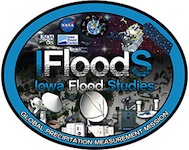
|
Iowa Flood Survey (IFloodS)
[Eastern Iowa, May 1 - Jun 15, 2013] NASA, in collaboration with other government agencies and members of the U.S. academic research community, conducted a field experiment in northeastern Iowa called the Iowa Flood Studies, or IFloodS. The main goal of the experiment was to support Ground Validation program activities of the Global Precipitation Measurement (GPM) satellite mission. |
Mid-Latitude Continental Convective Cloud Experiment

|
NASA MC3E Field Campaign Page
[North Central Oklahoma, ARM Site, Apr 22 - Jun 6, 2012] The Midlatitude Continental Convective Clouds Experiment (MC3E) took place in central Oklahoma [MAP] from April 22 through June 6, 2011. The experiment is a collaborative effort between the U.S. Department of Energy (DOE) Atmospheric Radiation Measurement (ARM) Climate Research Facility and the National Aeronautics and Space Administration (NASA) Global Precipitation Measurement (GPM) mission Ground Validation (GV) program. The field campaign leveraged the unprecedented observing infrastructure currently available in the central United States, combined with an extensive sounding array, remote sensing and in situ aircraft observations, NASA GPM ground validation remote sensors, and new ARM instrumentation. |
GPM Cold Season Precipitation Experiment (GCPEX)
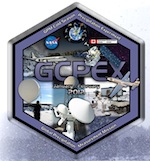
|
NASA GCPEX Field Campaign Web Page
[Ontario, Canada/Great Lakes Region] GCPEx was conducted over and near the Ontario, Canada/Great Lakes Environment Canada CARE site from January 17 to February 29, 2012. The experiment is designed to measure properties of falling snow for understanding frozen precipitation processes in association with improving and quantifying the detection limits and estimation errors of snowfall retrieval algorithms being developed for GPM. GCPEx addressed topics related to satellite algorithm development including assessment of minimum detectable snow rates, discrimination of rain and falling snow, discriminating falling snow from snow-covered land surfaces, microphysical assumptions in the algorithms, spatial heterogeneity of precipitation and its relationship to the aforementioned topics. |
HYdrological cycle in Mediterranean EXperiment (HYMEX)

|
HYdrological cycle in Mediterranean EXperiment (HYMEX)
HyMEX was a major experimental program aiming at better quantification and understanding of the hydrological cycle and related processes in the Mediterranean, with emphases put on high-impact weather events and regional impacts of the global change including those on ecosystems and the human activities. |
Last update: November 5, 2021

|
Privacy Policy and Important Notices |

|
Web Curator: Jianxin Wang NASA Official: David B. Wolff |


